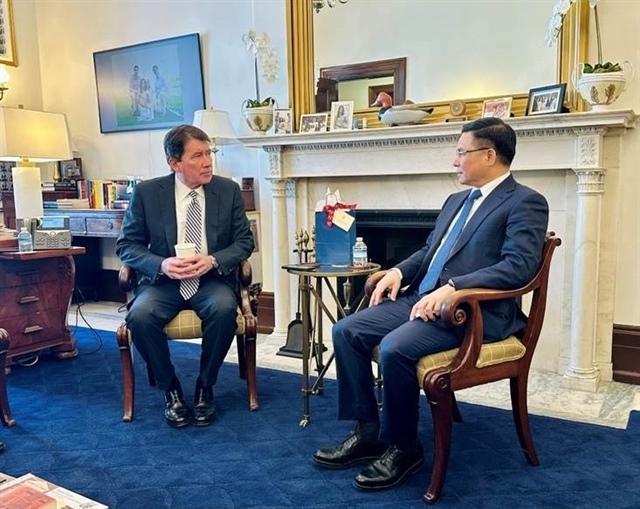Country records $2.45 billion trade deficit by mid-August
Country records $2.45 billion trade deficit by mid-August
Viet Nam saw a trade deficit of US$2.45 billion from the start of the year to mid-August, equivalent to 2 per cent of the total import-export turnover, statistics from the General Department of Customs revealed.

During the reviewed period, export turnover saw a year-on-year rise of 19 per cent to $124 billion, while import value hit $126.4 billion, up 23 per cent year on year.
However, in the first half of August alone, the country registered outbound sales of $8.63 billion, an 8.4 per cent drop over a half month earlier. The decline in exports was due to a strong slide in key products such as steel and iron, which fell 52.3 per cent, footwear (15 per cent), seafood (14 per cent), electronics and components (9 per cent) and garments and textiles (7.3 per cent).
Imports also dropped by 4 per cent to $8.63 billion in the first half of August, with a fall seen in several products such as cloth (17 per cent), telephones and parts (10 per cent), machinery and equipment (8 per cent) and computers, electronics and components (4 per cent).
As per the data, the foreign-invested sector’s import-export turnover was around $11.17 billion from August 1 to 15, down 5 per cent compared to the second half of July. This has raised the sector’s trade value from January to mid-August up to $163.1 billion, marking a year-on-year rise of 23 per cent, or accounting for 65.2 per cent of the country’s total turnover. The sector also recorded a trade surplus of $11.24 billion in the period.
Viet Nam’s total export turnover is likely to touch $200 billion in 2017, a rise of 13 per cent from last year and exceeding the set target, the Ministry of Industry and Trade has forecast. The country’s trade deficit has been estimated at $5 billion, or 2.5 per cent of the export turnover, lower than the National Assembly’s goal.
To realise this objective, addressing difficulties faced by exporters, promoting market information to tackle market barriers and updating information of free trade deals to enterprises will be prioritised. Various measures will be taken to help domestic enterprises meet the quality standards of importers and to increase the value of export products, especially agro-forestry-fishery goods.



















